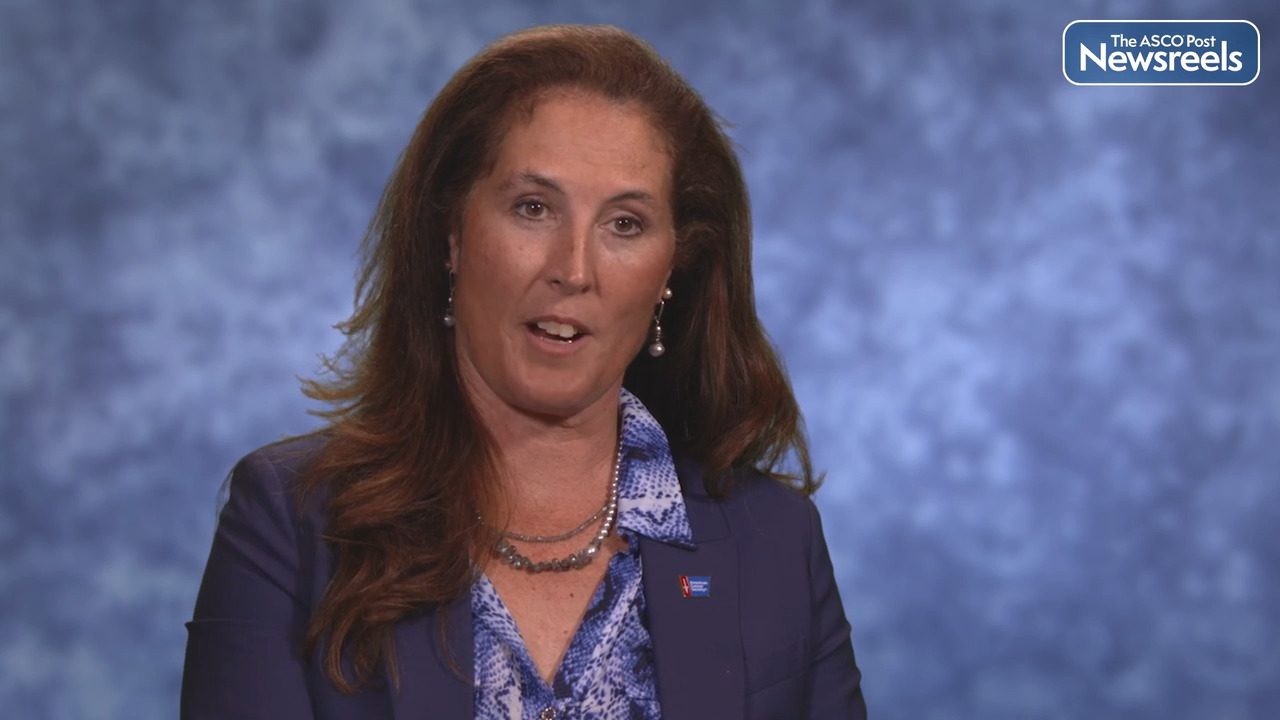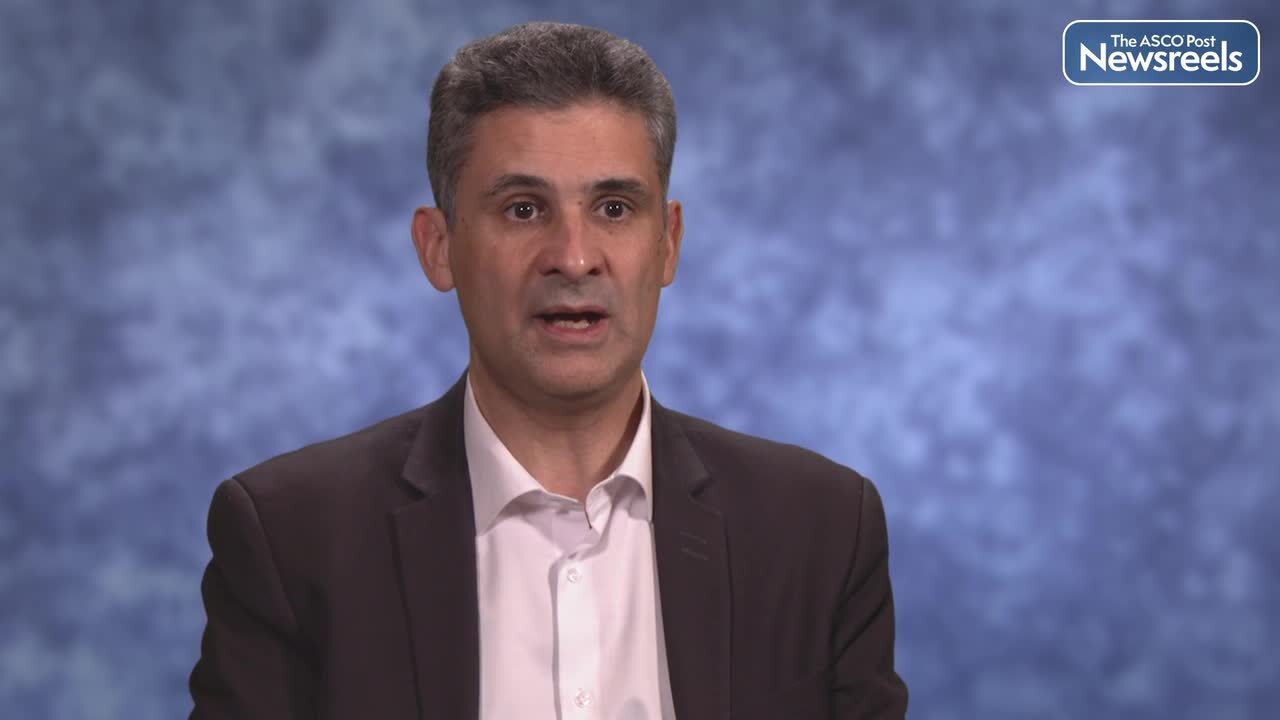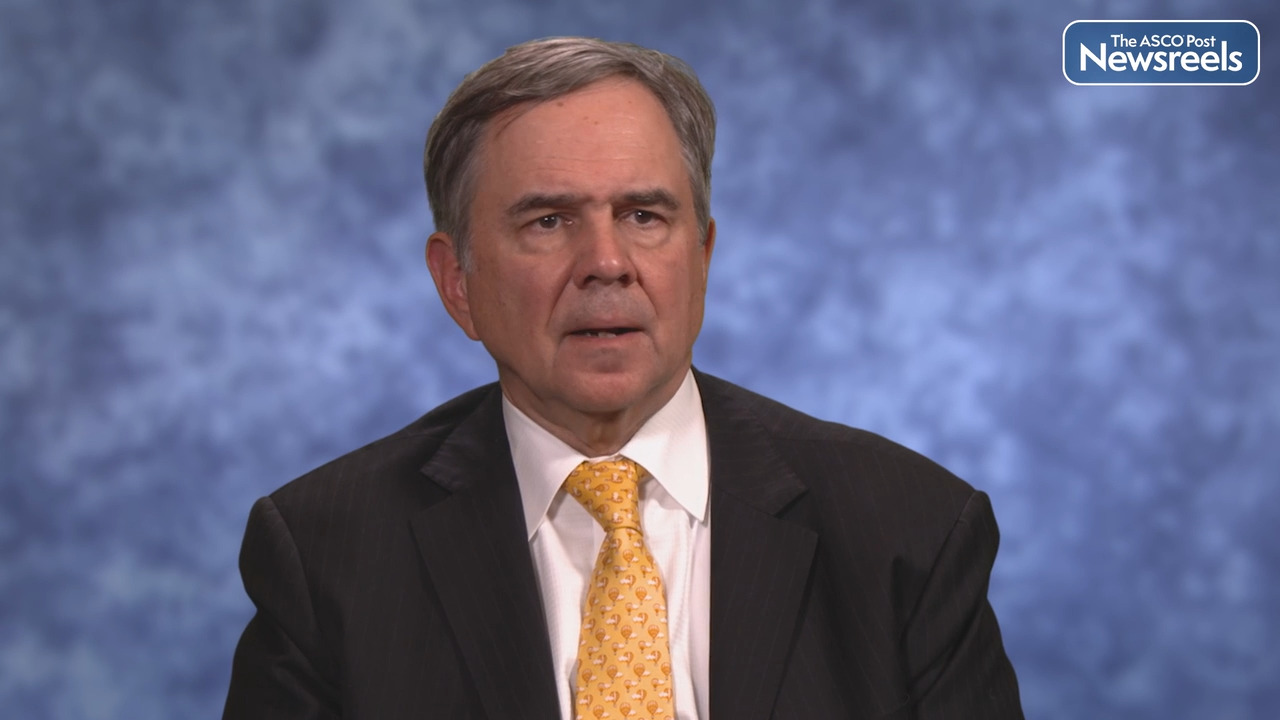Kim Nguyen Chi, MD, on Prostate Cancer: New Findings on Niraparib, Abiraterone, and Prednisone
2022 ASCO Genitourinary Cancers Symposium
Kim Nguyen Chi, MD, of the University of British Columbia, BC Cancer-Vancouver Center, discusses first phase III results from the MAGNITUDE study, which explored the use of the PARP inhibitor niraparib with abiraterone acetate and prednisone as first-line therapy in patients with metastatic castration-resistant prostate cancer with and without homologous recombination repair gene alterations (Abstract 12).
The ASCO Post Staff
Karen E. Knudsen, PhD, MBA, Chief Executive Officer of the American Cancer Society, discusses ways to address the inequities in genitourinary screening, treatment, and outcomes. Her suggestions focus on increasing awareness of screening, identifying risk factors, the dramatic rise in incidence among Hispanic individuals, and the basis for increased mortality in Black men.
The ASCO Post Staff
Karim Fizazi, PhD, MD, of Gustave Roussy and University of Paris-Saclay, discusses results from a first-in-human phase I/II trial, which showed that administering ODM-208—an oral, nonsteroidal inhibitor of the enzyme CYP11A1—to men with metastatic castration-resistant prostate cancer who were pretreated with abiraterone/enzalutamide and taxanes was effective in blocking the production of steroid hormones. It also showed antitumor activity, especially in men with AR mutation–positive cancers.
The ASCO Post Staff
Daniel P. Petrylak, MD, of Yale Cancer Center, discusses new data on the antitumor activity of neoadjuvant treatment with enfortumab vedotin-ejfv monotherapy in patients with muscle-invasive bladder cancer who are not eligible for cisplatin.
The ASCO Post Staff
Sumanta K. Pal, MD, of City of Hope National Medical Center, discusses some key research developments in kidney cancer, including data on nivolumab and ipilimumab with or without CBM588 in metastatic renal cell carcinoma; intestinal microbiome associated with the development of grade 3 or 4 adverse events in patients with metastatic disease who have been treated with nivolumab plus ipilimumab and probiotic support; the link between TERT promoter mutations and clinical outcome with immune checkpoint inhibitor therapy for advanced urothelial cancer; mutations in the androgen receptor gene in patients with prostate cancer receiving novel androgen deprivation treatments; and findings on waning antibody titers in patients who have received COVID-19 vaccinations (Roundup of Abstracts 371, 561, 374, Posters 38 and 48).
The ASCO Post Staff
Petros Grivas, MD, PhD, of the University of Washington and Fred Hutchinson Cancer Research Center, discusses results from Cohort 3 of the TROPHY-U-01 study, which assessed sacituzumab govitecan-hziy in combination with pembrolizumab in patients with metastatic urothelial cancer who experienced disease progression after platinum-based regimens (Abstract 434).





